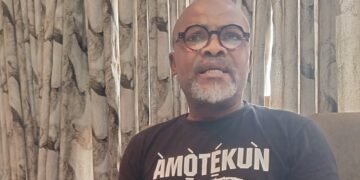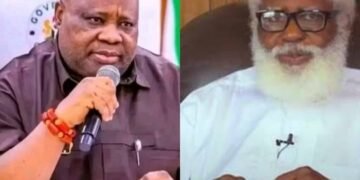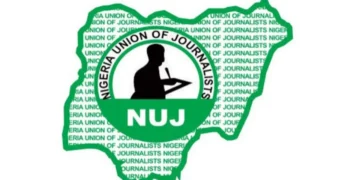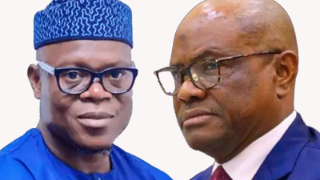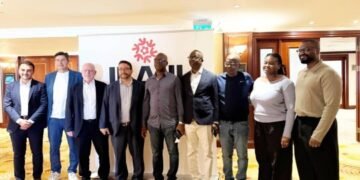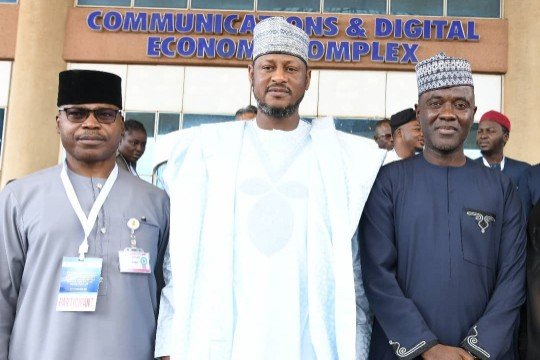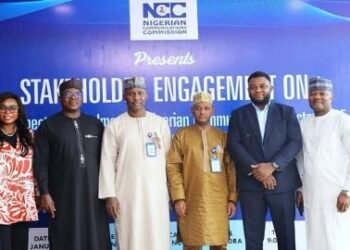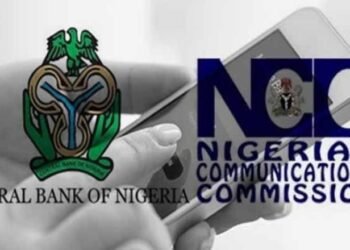Executive Vice Chairman/CEO of the Nigerian Communications Commission (NCC), Dr Aminu Maida, has said energy supply volatility and multiple taxation are major factors militating against effective broadband connectivity in Nigeria.
He added that infrastructure attacks, vandalism, fragmented and unpredictable Right of Way (RoW) regimes and cumbersome permitting processes also posed significant hindrances to progress in broadband connectivity.
The EVC/CEO stated these in his remarks at a business roundtable on improving investments in broadband connectivity and safeguarding critical national infrastructure, held at the NCC Digital Economy Complex, Mbora, Abuja, last Wednesday.
The business roundtable has the theme: “Right of Way and Protection of Broadband Infrastructure– The Road to Success in Broadband Investment and Connectivity.”
Maida, however, disclosed that NCC, in collaboration with the Office of the National Security Adviser (ONSA) and the Federal Ministry of Communications, Innovation and Digital Economy (FMCIDE), has taken some significant initiatives.
He highlighted some of the initiatives to include protection of Nigeria’s telecom against infrastructure vandalism and theft and ensuring continued network service provision by operators.
Maida said NCC has also launched a broad public awareness drive, including television and radio jingles, social media campaigns, and community engagement initiatives, to mobilise citizens in protecting telecom infrastructure.
In addition, he said, the Commission, alongside ONSA, is deepening collaboration with sub-nationals and their institutions, as well as the judiciary—for deterrence and speedy prosecution.
“Through mediation, enforcement, and prosecutions of vandals, the NCC and ONSA are giving practical effect to the Presidential Order on Critical National Information Infrastructure (CNII) Presidential Order, signed by President Bola Tinubu in June 2024.
“Within the last two years, ONSA has successfully dismantled major cartels responsible for the theft of telecommunications equipment across the country,” he said.
Despite these significant efforts, the NCC EVC/CEO admitted that some challenges remained, constituting obstacles to broadband deployment to some parts of the country, especially the underserved communities.
He said infrastructure attacks and vandalism has continued to pose a challenge, noting that between January and August 2025 alone, Nigeria recorded 19,384 fibre cut incidents, 3,241 cases of equipment theft, and over 19,000 cases of denials of access to telecom sites.
“Together, these disruptions have caused prolonged outages, revenue losses, increased security costs, and delayed service restoration. They demonstrate why infrastructure protection must be at the centre of our collective agenda,” he said.
Maida said another persistent challenge facing broadband expansion in Nigeria is the fragmented and unpredictable Right of Way (RoW) regimes across different states.
The unpredictable RoW regimes, he said, has created delays and also cost uncertainties for operators.
“This problem is compounded by inconsistent enforcement of critical infrastructure protection, weak coordination with road authorities, and the absence of clear construction planning protocols,” he added.
Apart from the above factors, Maida further said the telecom sector continues to contend with energy supply volatility, multiple taxation, and cumbersome permitting processes, “all of which,” he said, “pose significant headwinds to progress.”
Declaring that the situation is now a matter of urgency, he said a weak or distorted broadband constitutes a major hindrance to national growth and development as well as self-actualisation of Nigerians.
The NCC EVC/CEO told state governors, serving ministers at the federal level and other critical stakeholders of the dangers ahead, adding: “time is not on our side.
“The global digital race is accelerating. Artificial Intelligence (AI) is transforming industries; outsourcing is shifting to low-cost, high-connectivity environments.
“If our broadband backbone is weak, our youth will be marginalised, and our economy will likely not achieve its full potential.
“In earlier eras, a community without a railway or electricity could still subsist. In today’s world, a community without digital connectivity is invisible. It is cut off from education, markets, access to healthcare, social services, and opportunities.
“We must act decisively—state by state, community by community—to ensure no one is left behind.”
Advocating what he called “a shared responsibility and call to action,” Maida said every governor and state represented at the business roundtable on broadband connectivity are holding a strategic lever.
“Waiving RoW charges, protecting telecom infrastructure, and proactively supporting fibre deployment are decisions that can determine the prosperity or stagnation of your states.
“In states that have waived RoW and supported infrastructure protection, operators are expanding networks with greater confidence. This proves that policy direction matters.
“But we need alignment across all 36 states and the Federal Capital Territory. If every state embraces uniform, pro-investment policies, we can transform Nigeria into a continental digital powerhouse,” he said.
Maida subsequently made some concrete requests before the stakeholders gathered at the business roundtable, vis-a-vis:
“Be a partner in the operationalisation and enforcement of telecom assets as critical infrastructure;
“Adopt 100 per cent RoW waiver statewide (or, at minimum, the NGF benchmark), with clear SLA timelines for approvals;
“Institutionalise coordination between road/public works and operators—shared planning portals, advance works notifications, and dig-once protocols to prevent accidental cuts;
“Embrace transparency: Publish standard processes, timelines, and fees; adopt single- window permitting where possible;
“Create state digital-infra funds/incentives to crowd in private fibre in rural or underserved areas; leverage PPPs for open-access backbone and metro builds.
“Facilitate energy resilience: Support hybrid/solar power at sites to improve uptime and reduce OPEX and emissions.”
Maida said the roundtable was essential, declaring: “This is a strategic crossroads. Every decision—protective legislation, RoW waivers, enabling fibre—shapes the future of millions.
“With alignment, our states can become digital growth engines; with delay, we risk watching opportunity pass us by. Today’s discussion is about removing friction so investment flows faster and value reaches citizens sooner.
“Ladies and gentlemen, in the 21st Century, prosperity now lies in data, connectivity, and human potential. “Pipelines of oil are giving way to pipelines of fibre. Factories are being redefined by how many tech-entrepreneurs we nurture, not how many smoke stacks we build.
“NCC will continue to protect and expand Nigeria’s connectivity. But this is not a task we can embark on alone, it is a shared mission.
“Together, with governors and states, operators, the private sector, security agencies, and development partners, we can ensure our youth become creators, not merely consumers of digital value.”
Maida, asking, “Will we align- or be left behind?”, declared: “The digital revolution does not wait. Let us align, invest, and protect, for the prosperity of our people and the future of our nation.”


